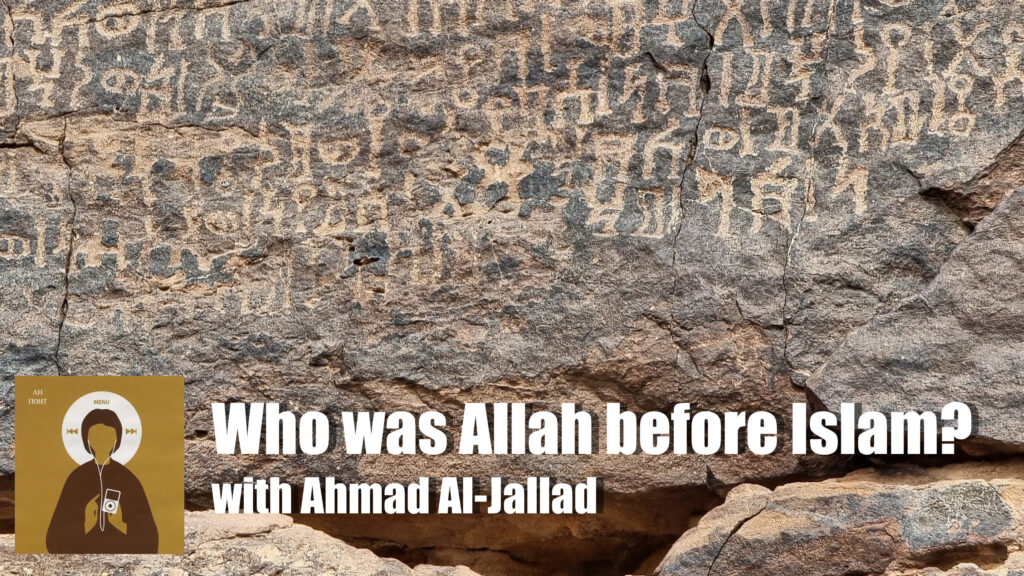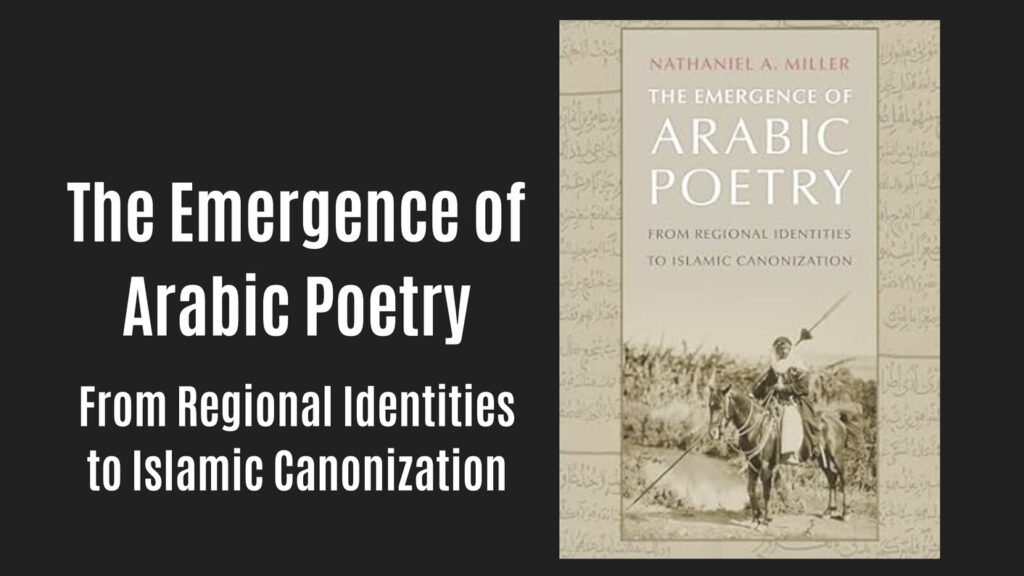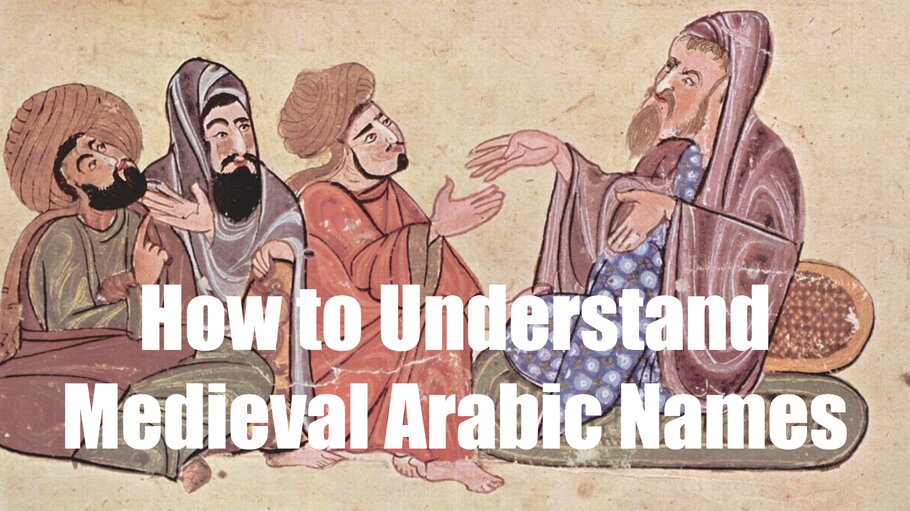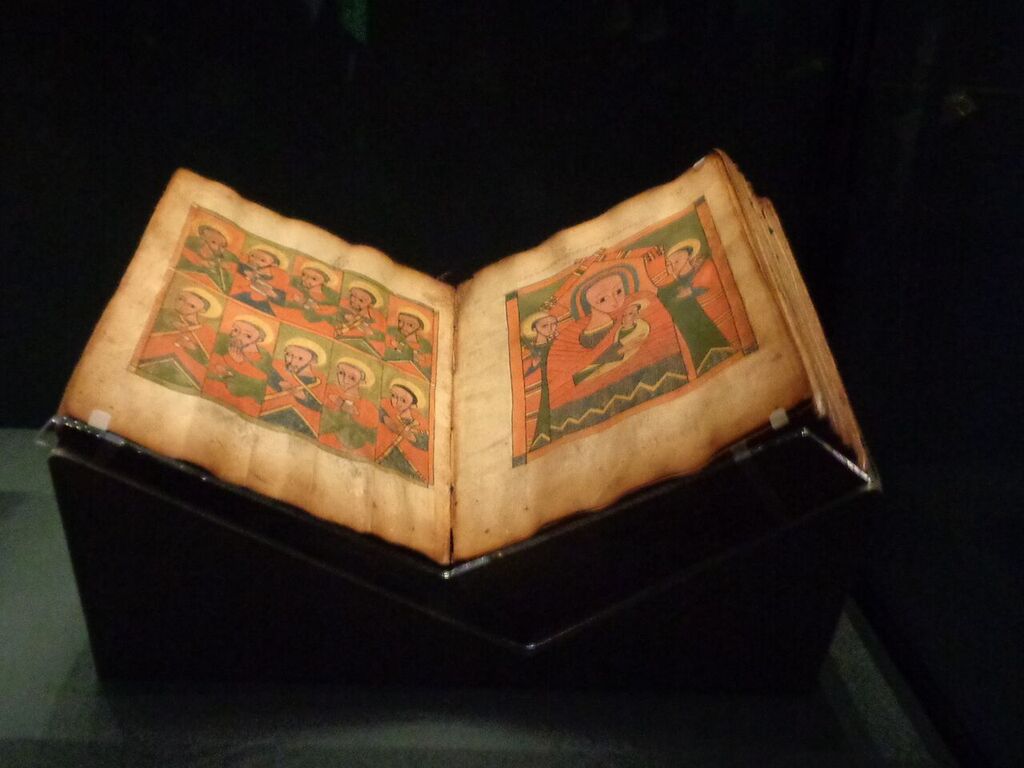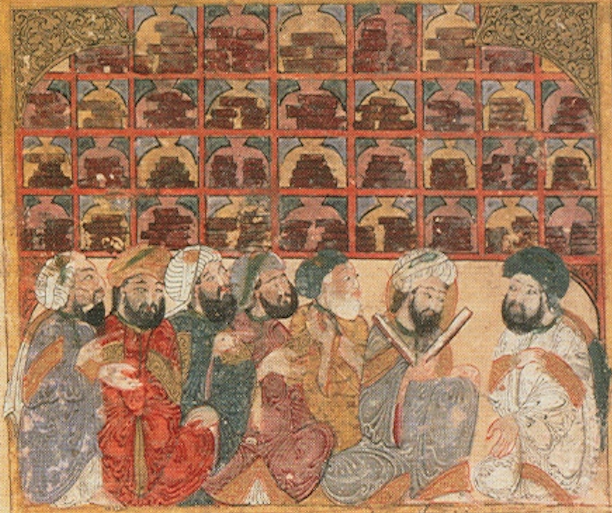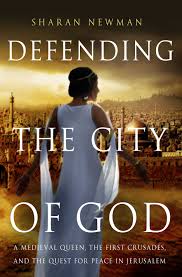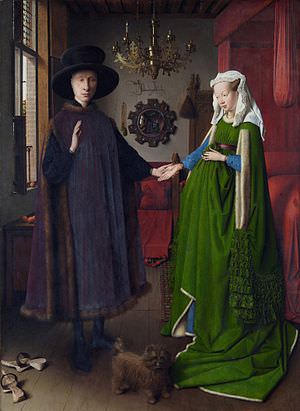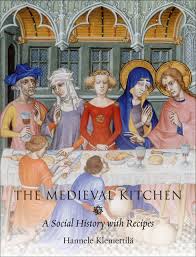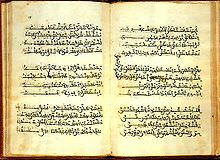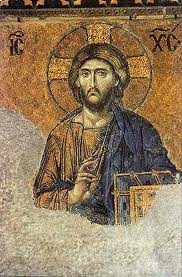Who was Allah before Islam?, with Ahmad Al-Jallad
A conversation with Ahmad Al-Jallad about the languages and inscriptions of pre-Islamic Arabia, our main contemporary source for life, death, and worship before the time of the Prophet Muhammad. We talk about field surveys in search of inscriptions and what they tell us about Allah and other Arabian deities in the early centuries of the first millennium.
New Medieval Books: The Emergence of Arabic Poetry
Offering a fresh look at the origins and development of Arabic poetry, this book argues that pre-Islamic poetry reflected regional identities and that later Islamic scholars favoured a specific style to define a unified Arab culture.
Early medieval inscription discovered in Saudi Arabia
Archaeologists in Saudi Arabia have uncovered an inscribed stone dating back to the 5th century AD. The inscription consists of three lines, two of which are written in Thamudic script and one in early Arabic script.
New Medieval Books: The Standard Language Ideology of the Hebrew and Arabic Grammarians of the ‘Abbasid Period
This open-access book examines the connections between Hebrew and Arabic in the Middle Ages when it comes to language. it offers a look at how people learned from each other even though they came from different backgrounds and religions.
How to Understand Medieval Arabic Names
Even though medieval Arabic names can get very long and look daunting, they reveal much about the person carrying them.
The Arabic Letters of the Byzantine Emperor Leo III to the Caliph ‘Umar Ibn ‘Abd al-‘Aziz: An Edition, Translation and Commentary
This study explores the tradition of the epistolary exchange between the two famous figures, the Byzantine emperor Leo III and the ‘Umayyad caliph, ‘Umar ibn ‘Abd al-‘Azīz.
Woman and love in medieval courtly literature: the real and the fictional
The purpose of this study is to examine the formal and thematic interaction of the poetry of medieval Arabs with Western literature through the Troubadour poets in France.
VIDEO: Female Sufis in the Medieval Period
Dr. Lloyd Ridgeon talks about the role of Sufi women in the medieval period. Ridgeone examines positive and negative portrayals of Sufi women in a wide range of texts.
Cultural Exchange in the Languages and Literatures of Medieval Spain
Professor David Wacks’s fascinating discussion of the Iberian Peninsula and it’s incredible linguistic heritage.
The Global Side of Medieval at the Getty Centre: Traversing the Globe Through Illuminated Manuscripts
Los Angeles correspondent, Danielle Trynoski takes through the, ‘Traversing the Globe Through Illuminated Manuscripts’ exhibut at the Getty Museum.
Metaphor in the Medieval Middle East
Through a study of metaphor in medieval Arabic literature, Stanford comparative literature professor Alexander Key finds that the Arab world had a head start on the West when it comes to understanding how language works.
On the Significance of Secrecy in the Medieval Arabic Romances
In this essay, I analyze the keeping and divulging of secrets as they relate to aspects of love and sexuality portrayed mainly in a selection of medieval Arabic romances known as the ‘Udhri love stories.
BOOK REVIEW: “Defending the City of God” : A Medieval Queen, the First Crusades, and the Quest for Peace in Jerusalem, by Sharan Newman
This is my review of Sharan Newman’s latest book, Defending the City of God: A Medieval Queen, the First Crusades, and the Quest for Peace in Jerusalem.
Apocalyptic Calculators of the Later Middle Ages
The purpose of my talk today is to explore why and how astrology became an accepted tool for apocalyptic calculation in the later Middle Ages.
Greek in Marriage, Latin in Giving: The Greek Community of Fourteenth-century Palermo and the Deceptive Will of Bonannus de Geronimo
This article discusses the pitfalls that can occur in the study of ethnicity in the me- dieval period in the context of the potential existence of two separate Greek minori- ties—one indigenous and one immigrant—in fourteenth-century Latin-dominated Palermo, Italy.
Medieval Cookbooks: Something to Inspire the Medieval Cook in all of us!
Baby it’s cold outside. Brrrrr! It’s January, snow is blowing, frost is nipping at your toes – it’s a great time to cook a hearty, hot meal. Want to make it even better? Try a medieval menu! Here are a few books to inspire the medieval cook in all of us.
A Study on the Effects of Ghazan Khan’s Reformative Measures for the Settlement of the Nomadic Mongols (1295-1304)
The Ilkhanid’s sovereignty in Iran was part of the great empire under the command of Genghis Khan and his successors. It extended broadly from Korea to Eastern Europe and China to Iran and Syria. Such conquest originated from Mongolia (Middle Asia), which was the original land of these homeless nomadic people. They lived by shepherding, hunting and sometimes looting nearby tribes or civilized centers.
The Calamitous Fourteenth Century in England: All Doom and Gloom?
This was a fantastic paper given at the Crown and Country in Late medieval England session at KZOO. There were only two papers but both were interesting and enjoyable. This paper delved into the history of science in late medieval England and examined why the fourteenth century, a time that is usually synonymous with doom and gloom, plague and uprising, wasn’t all that bad upon closer observation.
Notes on a private library in fourth/tenth-century Baghdad
Studies on medieval Arabic bibliophilia have mainly focussed on public and semi-public institutions, for some of which we have detailed information. Less is known about private libraries and their physical arrangement. This paper looks at the library of Abū Bakr al-Ṣūlī (d. 335/947), which is described by the sources in unique terms, contextualising it with al-Ṣūlī’s own words on collecting and organizing books.
Freedom of expression and censorship in medieval Arabic literature
This article explores the restraints placed upon literary production in medieval Arabic literature (particularly poetry) and the ways in which such control was effected
Neither ill nor healthy: The intermediate state between health and disease in medieval medicine
Paradoxically, however, the notion of an intermediate state between health and disease also has a long history, harking back, at least, to the times of Galen. The question of the existence of such a state and the utility and necessity for physicians to acknowledge it, was particularly hotly debated in the Middle Ages…
Jacopo da Firenze and the beginning of Italian vernacular algebra
Whatever the reason, nobody seems to have taken an interest in the treatise before Warren Van Egmond inspected it in the mid-seventies during the preparation of his global survey of Italian Renaissance manuscripts concerned with practical mathematics.
Conversion and Empire: Byzantine Missionaries, Foreign Rulers, and Christian Narratives (ca. 300-900)
For a broader modern audience today, if taken somewhat journalistically, Pusicius’ story is an example that cuts along cultural and religious lines that presumably originate in ancient, political divisions and confirm a “clash of civilizations” thesis.
The Indigenous Christians of the Arabic Middle East in an Age of Crusaders, Mongols, and Mamlūks (1244-1366)
The chronological period of study is highlighted by the usurpation of the Ayyūbid-ruled Sultanate by the Baḥrī Mamlūks, while the two most important political-military events in the region were the collapse of the Crusader States and the invasion of the Mongols. This thesis will examine how events impacted on the nine Christian Confessions, treating each separately.
The Evolution of the Saladin Legend in the West
William of Tyreʼs account of the history of the Crusades stops suddenly in 1184. As he lays down his pen he is in despair at the inevitable outcome which he foresees for the struggle with Saladin. It was fortunate for him that he did not live to see the triumph of Saladin at Hattin and Jerusalem. Williamʼs judgement of Saladin, there- fore, is one of fear and admiration but he is also able to criticize his faults, especially his ruthless ambition.
